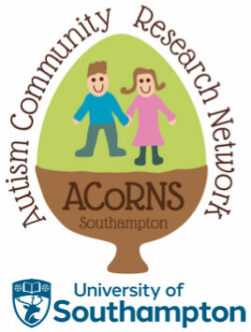
| Name | Sarah Parsons |
| Job Title and Organisation | Professor of Autism and Inclusion, Director of Research
Southampton Education School University of Southampton |
| Introduction/Background (experience, qualifications, current work/research, etc.) | I have always been very interested in supporting children, young people, and adults with additional learning needs and spent a lot of time before and during my university life volunteering in special schools. I completed a BSc in Psychology and then a PhD in Developmental Psychology, which was where my interests and experience in autism began. Since then I have worked on, and led, a wide range of autism and disability-related research, focusing on the views and experiences of parents, as well as children, young people and adults. I have recently led the ESRC-funded seminar series: ‘Innovative technologies for autism – critical reflections on digital bubbles’ (www.digitalbubbles.co.uk) , which is one of my main areas of interest, and I lead the ACoRNS project. |
| What does the ACoRNS project mean to you? | I am especially interested in working in collaboration with others in the context of participatory and inclusive research. ACoRNS is a fantastic opportunity to put those interests into action by working in partnership with local community members who are passionate about developing, applying, and understanding best practice in autism education. I see ACoRNS as a vital, reciprocal and shared endeavour in which research and practice can be strongly connected. Research should help to answer the questions, and meet the needs, of the local community, and practice should always inform and shape research. We do this within ACoRNS by working together from the very start and putting the views and experiences of children and young people at the centre of what we do. |
| Areas of interest | I have longstanding interests in exploring the views and experiences of children, young people and families in relation to educational provision. Previous research focused on the participatory design and development of innovative technologies for autistic children, evidence-based practices in autism, and research ethics relating to children and young people. |
